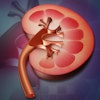Dear AuntMinnie Insider,
Fallout from last month's report of unsterilized equipment being used for conventional colonoscopy continues to plague the U.S. Department of Veterans Affairs.
A report published today cites the agency's investigation of a positive HIV test in a patient treated at one of three centers that failed to properly sterilize colonoscopy equipment. The HIV case is in addition to 16 reported cases of hepatitis and the death of a cancer patient from infection following a colonoscopy procedure at one of the centers. Get the rest of the story here.
Following February's proposed decision by the Centers for Medicare and Medicaid Services (CMS) to exclude screening virtual colonoscopy as a covered exam under Medicare, members of the U.S. Congress are petitioning CMS to include virtual colonoscopy (also known as CT colonography or CTC) as a covered exam in its upcoming National Coverage Decision.
Meanwhile, private insurers in the U.S. -- a group not known for their reckless spending on unproven technologies -- are increasingly embracing CTC. They're paying for CTC screening in more than half of U.S. states and covering screening costs for a growing number of insured patients in all U.S. locations. Find out why by clicking here.
VC also appears to be cost-effective in the Medicare population, according to a peer-reviewed study from Madison, WI, and Rome that addresses an evidence gap CMS cited in its proposed denial of coverage. Adding abdominal aortic aneurysm screening to VC increased its cost-effectiveness, the international team found. But another study concluded that adding a chest scan to VC cost more than it was worth.
Nearly 97% of the public comments CMS received during a 30-day period ended March 12 favored the adoption of virtual colonoscopy as a covered exam. Will CMS be moved to change course before its expected National Coverage Decision on May 19? Stay tuned to your Virtual Colonoscopy Digital Community.
In Europe, researchers are weighing in with important new studies on minimal-prep VC, computer-aided detection (CAD), and the positive effects of conventional colonoscopy on the German screening population. And Scottish researchers found that guaiac fecal occult blood testing is likely to reduce colorectal cancer mortality.
Finally, this issue's Insider Exclusive story features a study from Seoul, South Korea, that combines electronic cleansing with CAD. For more up-to-the-minute news about virtual colonoscopy, just scroll down.




















